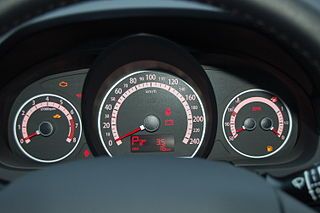Understanding the Difference Between Energy and Power: Critically Important in Clean Energy Discussions

It’s like the difference between miles and miles per hour. If you said, “The distance between New York and Philadelphia is 90 miles per hour,” or “I’m driving at a speed of 50 miles,” you’d be rebuked. Imagine my chagrin when I heard a story this morning on NPR, where, in a description of an electric vehicle race I heard, “Her car puts out 28 kilowatt-hours,” which is akin to the meaningless statement: “Her car puts out a little less than a gallon of gasoline.”
A gallon of gas contains a certain amount of energy, which can be measured in kilowatt-hours. Power (normally measured in watts or horsepower) is the rate at which that energy is made available. Power = Energy / Time, or Energy = Power X Time.
This is a really good thing to understand completely; getting it wrong is a telltale indicator of ignorance in this space. When people say, for instance, that a certain form of energy costs so many cents per kilowatt (rather than kilowatt-hour), that’s a bad sign.
